 Wednesday. Doth he feel it? no. Doth he hear it? no. 'Tis insensible, then? Yea, to the dead. But will it not live with the living? no. Why? detraction will not suffer it. Therefore I'll none of • it. Honour is a mere scutcheon : and so ends my catechism. Wednesday. Doth he feel it? no. Doth he hear it? no. 'Tis insensible, then? Yea, to the dead. But will it not live with the living? no. Why? detraction will not suffer it. Therefore I'll none of • it. Honour is a mere scutcheon : and so ends my catechism.  National Review - Page 211861Full view National Review - Page 211861Full view - About this book
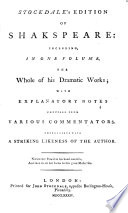 | William Shakespeare - 1784 - 1118 pages
...Who luth it ? He that dy'do* WednefcUy. Doth he feel it ? No. Doth he he ir it ? No. Ь it infenfible then • Yea, to the dead. But will it not live with the living : No. Why ? Detraction will not iviiler it : — therefore I'll none of it : Honour is a mere fcutcheon, and fo ends my cateciiuw—... | |
 | William Shakespeare - 1789 - 712 pages
...word. What is that word, honour ? Air. A trim reckoning ! — Who hath it ? He that dy'd o' Wednefday. Doth he feel it ? No. Doth he hear it ? No. Is it infenfible then ? Yea, to the dead. But will it not live with the living ? No. Why ? Detraction will... | |
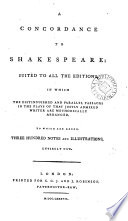 | Andrew Becket - 1787 - 494 pages
...\vord;. What is that word, honour ? Air. A trim reckoning ! — Who hath it ? He that dy'd o' Wednefday. Doth he feel it ? No. Doth he hear it ? No. Is it infenfible then ?• Yea, to the dead. But will it not live with the living ? ' No. Why ? Detraction... | |
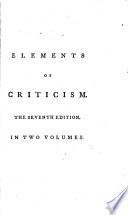 | Lord Henry Home Kames - 1788 - 548 pages
...Who hath it ? He that dy'da Wednefday. Doth he feel it ? No. Doth he hear it ? No. Is it Infenfible then ? Yea, to the dead. But will it not live with the living ? No ? Why ? Detraction will not fuffer it. Therefore I'll none of It ; honour is a mere fcutcheon ; and fo ends my catechifm. Fuji... | |
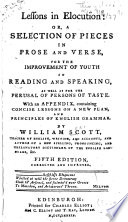 | William Scott - 1789 - 416 pages
...it ? he that died a Wednefday. Doth he feel it ? no. Doth he hear it ? ho. Is it infenfible then i yea, to the dead. But will it not live with the living ? no. Why ? detraction will not liiffer it. Therefore, I"ll none of it. Honour is a mere 'fcutcheon — and fo ends my catechifm. XXV.... | |
 | William Shakespeare - 1790 - 626 pages
...Honour hath no (kill in furgery then ? No. "What is honour ? A word. What is in that word, honour' What is that honour? Air. A trim reckoning! — Who hath it ? He that died o' Wednefday. Doth he feel it ? No. Doth he hear it ? No. Is it infenfible then ? Yea, to the dead. But... | |
 | William Shakespeare - 1789 - 718 pages
...word. What is that word, honour ? Air. A trim reckoning!—Who hath ii ? He that dy'd o' Wednefday. Doth he feel it ? No. Doth he hear it ? No. Is it infenfible then ? Yea, to the dead. But will it not live with the living? No. Why? Detraction will... | |
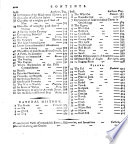 | 1792 - 494 pages
...hath it? Jic that died a Wetlni fday. Doth he feel it ? Jio. Doth he hear it • ao. Is it infcn/ible then ? yea, to the dead. But will it not live with the living? no. Why? detraction will not fuflcf it ; therefore, I'll none of it : honour ii a mere fcutchcon : and fo ends my catcchifin. Wid.... | |
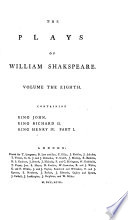 | William Shakespeare - 1793 - 618 pages
...life." MALONE. hath no (kill in furgery then? No. What is honour? A word. What is in that word, honour? What is that honour? Air. A trim reckoning! — Who hath it? He that died o' Wednefday. Doth he feel it ? No. Doth he hear it ? No. Is it infenfible then? Yea, to the dead. But... | |
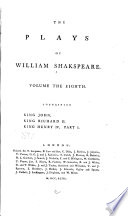 | William Shakespeare - 1793 - 700 pages
...life." MALONE. hath no flcill infurgery then? No. What is honour? A word. What is in that word, honour? What is that honour? Air. A trim reckoning! — Who hath it? He that died o' Wednefday. Doth he feel it? No. Doth "he hear it? No. Is it infenfible then ? Yea, to the dead. But... | |
| |